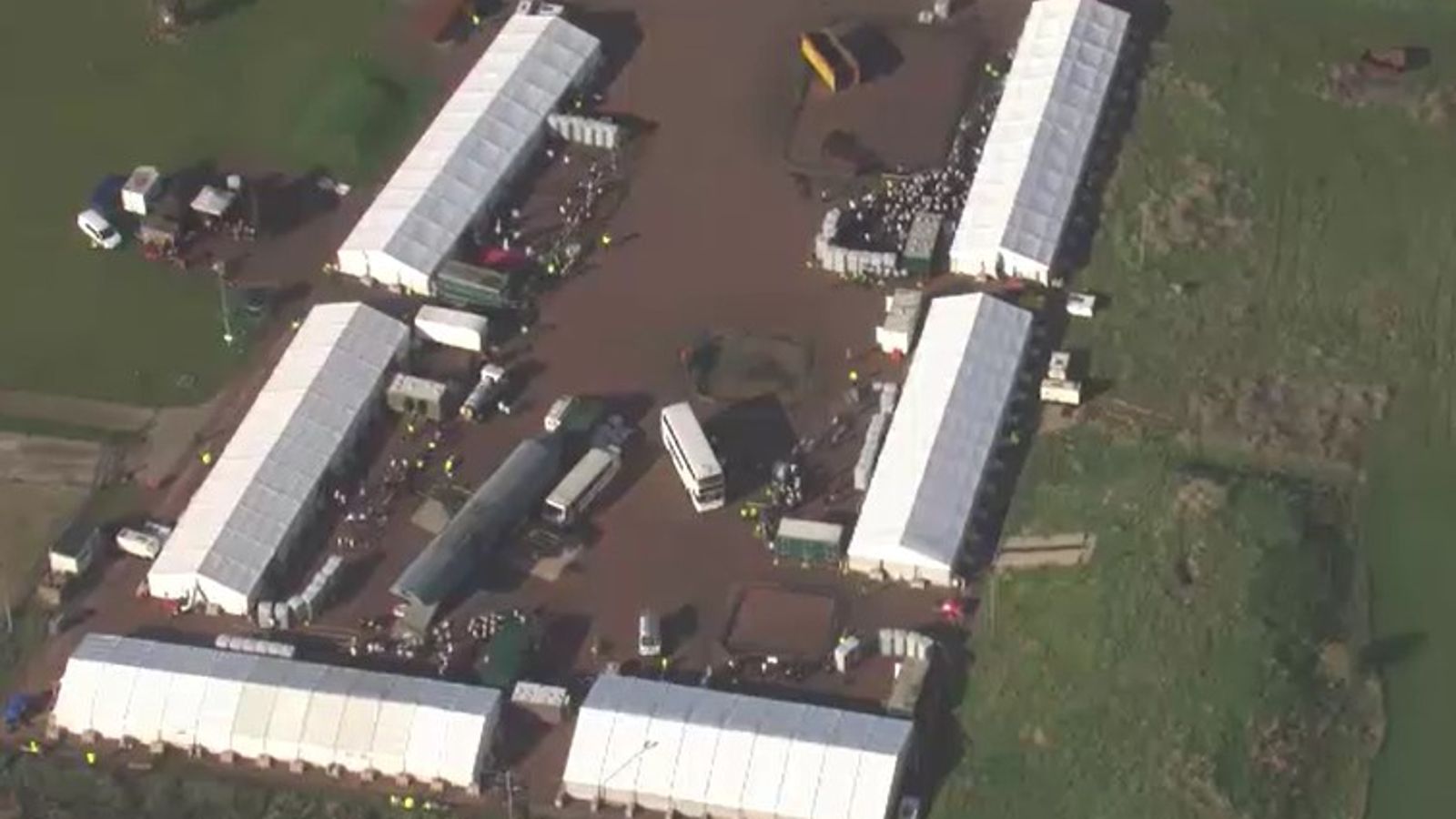Diphtheria cases rising among asylum seekers as migrants ‘moved from Manston with suspected infection’

Health officials have raised concerns that some migrants have been moved from a processing centre in Kent to other parts of the country while suffering from suspected diphtheria.
There have been dozens of suspected cases of diphtheria among those who have left the Manston processing centre in recent weeks, according to The Sunday Times.
It comes after Sky News revealed a man who died after staying in the Manston centre had diphtheria, with a government spokesperson saying initial local hospital tests had been false negatives.
Post-mortem examinations are continuing, however, meaning the official cause of death cannot yet be confirmed.
Some officials have now voiced concerns that the Home Office is being reckless in allowing the migrants to be sent around the country without being properly screened.
Professor Jim McManus, head of the Association of Directors of Public Health, told Sky News: “We learned with Afghan refugees that the Home Office and directors of public health can work together very constructively to address the health issues of refugees.
“Sadly, that hasn’t been the case this time and as a result we’ve seen preventable diseases spread across the country, harming refugees and costing us much more than preventing them would have done.
“To say this is regrettable is an understatement.”
It is understood that there has been an increase in the number of asylum seekers with diphtheria across Europe, with the situation worsening since October.
Advertisement
And many come from countries where diphtheria vaccination is not routine, as it is in the UK.
Officials fear screening arrangements at Manston have broken down, and that regional health chiefs are not informed before migrants are moved into their areas, with no record of whether they have been screened, infected, exposed, or are being treated.
Please use Chrome browser for a more accessible video player
2:29
Home Sec admits migration failure
As of 10 November, the UK Health Security Agency (UKHSA) had identified 39 diphtheria cases in asylum seekers in England in 2022.
But it is understood cases had risen to about 50 in an update on Friday.
Officials could not rule out the number of cases suspected by medics as being higher.
Diphtheria is a highly contagious infection that affects the nose and throat, and sometimes the skin.
It can be a serious illness and sometimes fatal, especially in children, if it is not treated quickly but vaccination can prevent it, according to the NHS.
The UKHSA said: “The risk of diphtheria to the wider public remains very low, due to high uptake of the diphtheria vaccine in this country, and because the infection is typically passed on through close prolonged contact with a case.
“In order to limit the risk of diphtheria being passed on within asylum seeker settings, UKHSA continues to recommend that individuals arriving at reception centres, and who have moved on recently, are offered a diphtheria vaccine and preventative treatment.”
Diphtheria cases are usually expected to isolate, along with any contacts.
The Home Office said last week there were no longer any people at the Manston centre after it experienced severe overcrowding earlier this month.
A Home Office spokesperson said: “We work closely with a range of partners within the community including local authorities and health leads to make sure information is shared in a timely way and that everyone leaving Manston is given access to appropriate treatment.
“As the UK Health Security Agency have made clear, the risk of diphtheria to the public is very low, due to high uptake of the diphtheria vaccine in this country and because the infection is typically passed on through close prolonged contact with a case.
“We take both the welfare of those in our care and our wider public health responsibilities extremely seriously. As such, we continue to work closely with the NHS and UKHSA to support the individuals affected and limit the transmission of infection.”
